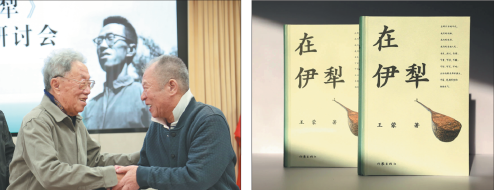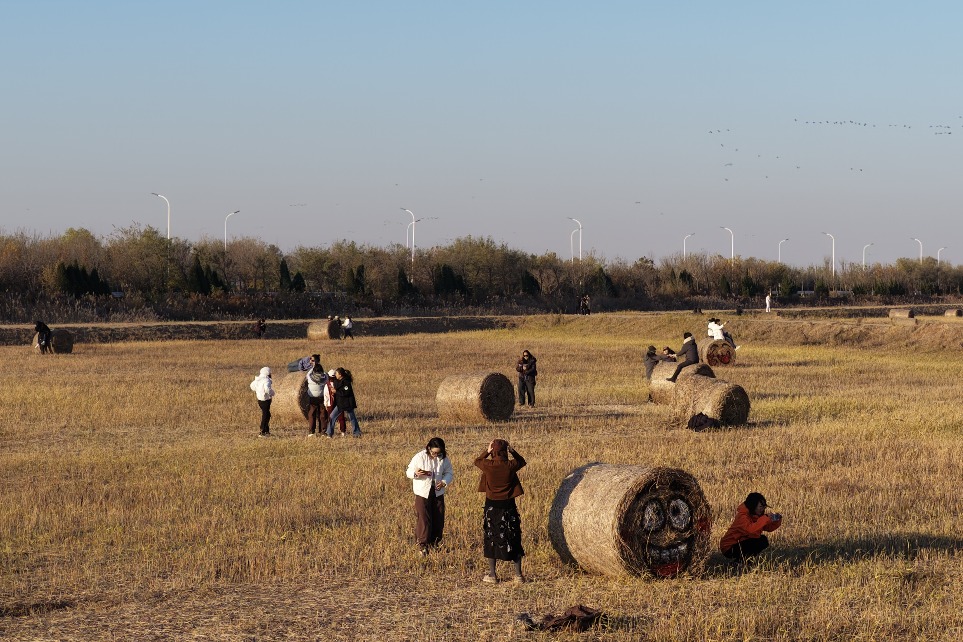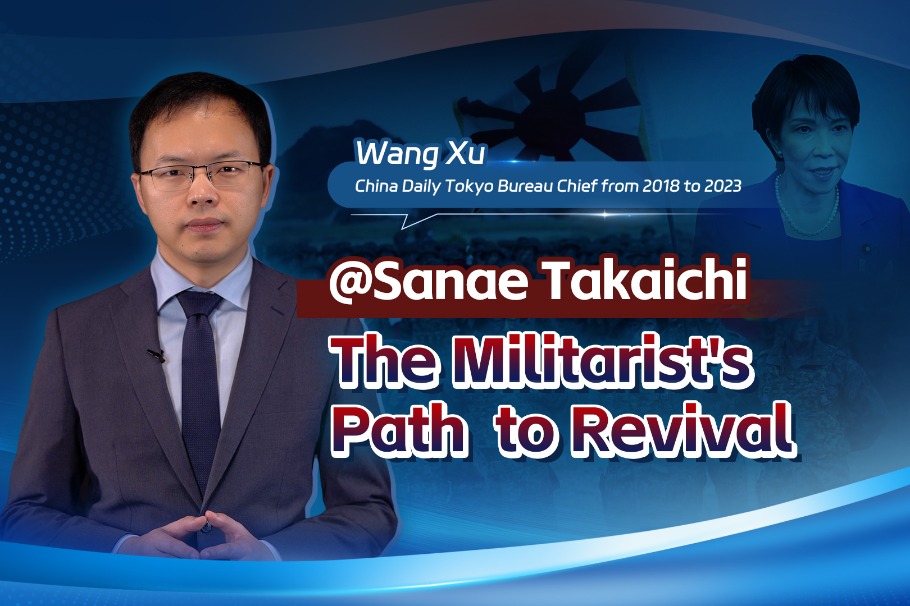Book takes author back into the warm embrace of Uygur traditions

In 1965, renowned writer Wang Meng went to the Ili Kazak autonomous prefecture in Xinjiang Uygur autonomous region for work. He ate and lived with the farmers, learning to use iron tools, mastering the Uygur language, and deeply adapted to the Uygur way of life.
Based on this six-year experience in Ili, Wang wrote the In Ili series of works between 1983 and 1984. This book was originally released by The Writers Publishing House in 1984 and was republished by the same publisher in July.
"I deeply appreciate the republication of In Ili. It felt as though time had rewound back 40 years, and I was recounting memories of my 30s. It was a special time of youth and the prime of my life," Wang said at the launch of the new edition in Beijing on Oct 29.
In Ili comprises nine stories and is narrated from the perspective of the writer Lao Wang, who records his encounters with the local people of Xinjiang. The narrative depicts scenes of people from diverse backgrounds playing together, working in unison, and confronting life's challenges hand in hand. Through a prose-style portrayal of daily life and destinies of individual characters, the work provides readers a glimpse into the personalities of people of the Uygur ethnic group.
This new edition includes a fresh preface Wang wrote in 1981 upon his return to Bayandai town in Ili, nearly two years after his departure. In this preface, he recounts a heartfelt reunion with his Uygur farmer friends, offering valuable insights into the characters and inspirations behind In Ili.
In the eyes of the local people, individuals who fluently speak two languages are labeled as "two tongues", a term that suggests wit and is one of respect within the community.
One reviewer, Gulnar Obul, a member of the Party leadership group and vice-chairman of the Xinjiang Association for Science and Technology, says, "Because Lao Wang can speak both Mandarin and the Uygur language, he is a typical 'two tongues' person. Through his bilingual ability, I always sense the presence of two Lao Wangs, and this way of telling stories navigates between two cultures, showcasing dialogues and contemplation within Uygur culture."
Furthermore, Gulnar also highlights that the book unveils several distinct ethnic characteristics that may be unfamiliar to readers. There are many cultural differences between northern and southern Xinjiang. For example, women in Ili, located in northern Xinjiang, prefer to tie their headscarves at the back. Conversely, people in southern Xinjiang lead a more traditional lifestyle, tying their headscarves under the chin. Wang captures these subtle details of Xinjiang residents' lives, vividly portraying the images of the Uygur ethnic group.
Wang, born in October 1939, was honored with the title of People's Artist by the country in 2019. His notable works include Qingchun Wansui (Long Live Youth) and The Butterfly and Other Stories. Celebrating his 90th birthday recently, Wang's passion for writing spans seven decades, with a total character count exceeding 26 million. Reflecting on the republication of In Ili, he reaffirms his continued exploration of the theme of happiness.
Recalling his time in Ili, Wang comments, "Though my circumstances in Ili could be deemed challenging, I ventured there by my own choice, driven by a desire to immerse myself in the local culture and language.
"How to understand the pain is a vital topic of literature. The problem is that many people feel too much pain, even heavier than the actual pain itself," he adds. "From my point of view, experiencing happiness is a responsibility for everyone, at all times. During my days in Ili, I couldn't envision the future that lay ahead, but I didn't feel depressed. I simply drank copious amounts of milk tea, laughed and enjoyed the moment. Together with my Uygur friends, I embraced unity, contributing to the vibrant tapestry of the Xinjiang community."
Tu Jiayi contributed to this story.
China Daily

Today's Top News
- Four global initiatives align with Africa's future
- China's model of governance widely praised
- Shanghai jumps to beat of electronic music festival
- COP30 outcomes reflect multilateralism despite headwinds
- 'No room for compromise' on sovereignty, FM says
- Battery tech progress to power EV sector's future






























